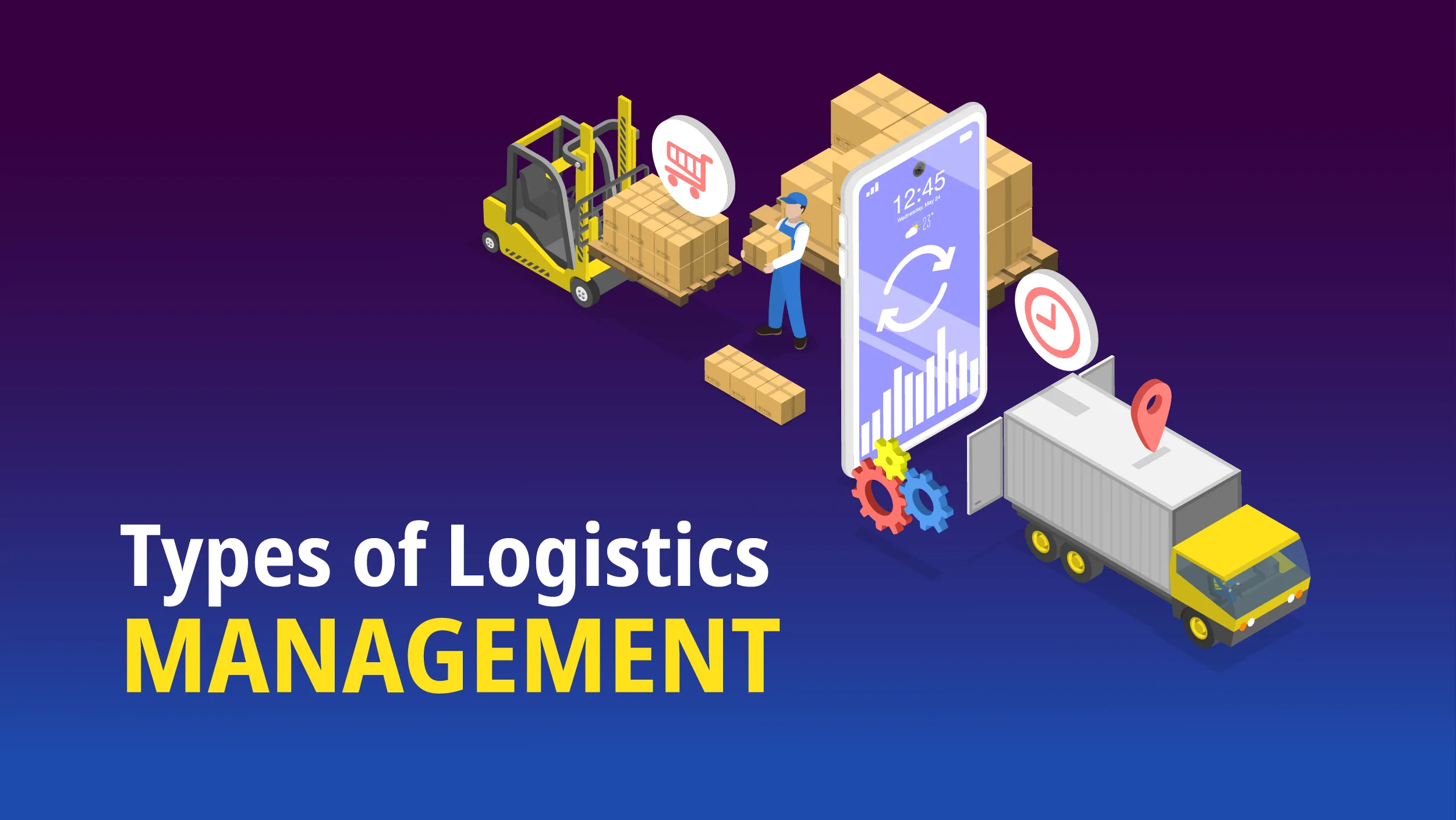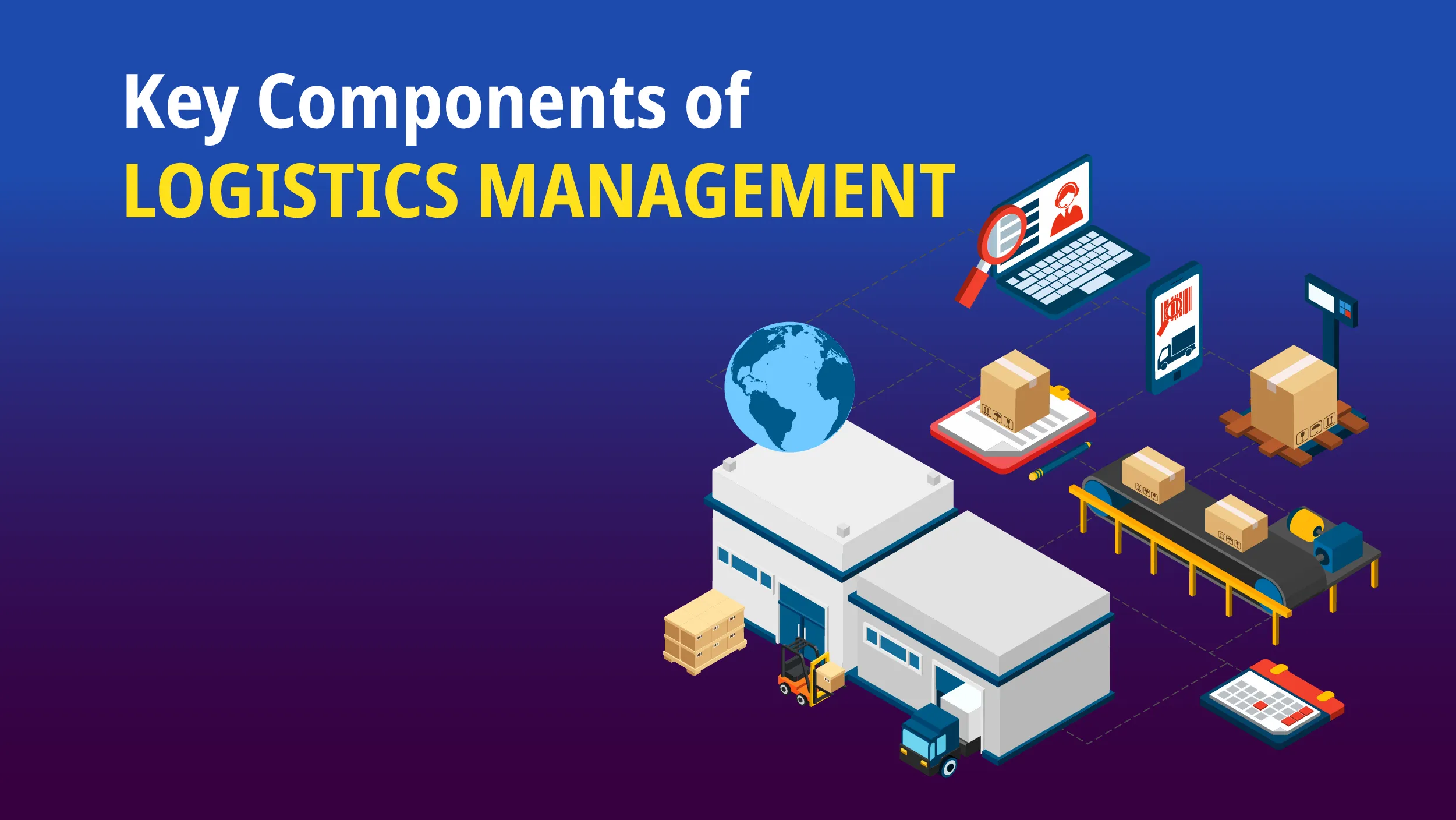Managing the flow of goods from suppliers to customers involves a complex set of tasks.
Coordinating inventory, overseeing order fulfillment, and ensuring timely delivery are just a few of the critical components.
Effective logistics management is essential for maintaining operational efficiency and meeting customer expectations. The challenges of logistics extend beyond simple order processing; they require a strategic approach to streamline the entire supply chain.
In this article, we will explore the significance of logistics management and provide insights into strategies for optimizing your supply chain to enhance efficiency and support business growth.
What is Logistics Management?
Logistics management involves overseeing supply chain functions to help organizations plan, manage, and implement processes for moving and storing goods.
Typical activities of managing logistics include handling inbound and outbound transportation, warehousing, fleet management, order fulfillment, materials handling, logistics network design, supply and demand planning, inventory control, and coordinating with third-party logistics service providers. The logistics industry is experiencing significant growth. The U.S. Bureau of Labor Statistics projects a 28% increase in job opportunities for logisticians between 2021 and 2031.
Types of Logistics Management

The logistics management process starts with the collection of raw materials and extends to the final delivery of goods to their destination. Different stages of the supply chain involve various types of logistics. The main categories of logistics management include:
1. Supply management
Supply management encompasses the planning, procurement, and coordination of materials required at a specific location and time to support production. This process also involves managing the storage and transportation of these materials. Additionally, it requires assessing supply levels to align with demand, ensuring a seamless workflow. Timely execution of supply management is crucial, as any delays can disrupt the entire supply chain.
2. Distribution and material handling
This process typically involves transporting stored materials or products for further manufacturing or distribution. It requires extensive handling tasks such as loading, unloading, tracking, and inventory management. This type of logistics oversees the movement of supplies from a central warehouse to multiple destinations, emphasizing the importance of timely delivery and efficient material handling.
3. Product management
Product management in logistics encompasses the planning, management, and oversight of various stages of a company’s production process. It involves coordinating manufacturing or assembly operations, managing the movement of goods between factories and warehouses, optimizing production spaces, and adhering to a strict timeline. Effective production logistics is essential for achieving capital efficiency.
4. Customer service management
Customer service management encompasses the practices, strategies, and technologies that businesses use to oversee and analyze customer interactions and data throughout the customer lifecycle. In logistics, effective customer service management relies on clear communication and ensuring timely, damage-free deliveries. This approach enhances business relationships with customers and supports customer retention.
5. Returns management
Returns management, also known as reverse logistics, refers to handling the process of returning items to a company. This process includes reclaiming materials and supplies from production or assembly, as well as accepting returns of damaged, unwanted, or unused products from customers. By thoroughly inspecting and sorting these returned items, companies can minimize losses by restocking undamaged or unused products in their inventory.
Also Read: Understanding Cold Storage Warehouses: Types & What Should Be Avoided
Key Components of Logistics Management

Logistics management encompasses a broad network of suppliers, agents, freight forwarders, distributors, packers, and service providers, utilizing various modes of transportation. It is a complex process involving numerous components that ensure the efficient movement of goods. The key elements of logistics management include:
1. Inventory Planning
Inventory planning ensures optimal stock levels to satisfy customer demand while reducing storage costs. Effective inventory control enhances order accuracy, maintains an organized warehouse, boosts productivity, and results in time and cost savings.
2. Inbound Logistics
The term “inbound logistics” describes how a business moves, stores, and receives commodities. Good inbound logistics may speed up production, cut expenses, prevent material waste, boost sales, and assist in acquiring high-quality goods.
3. Outbound Logistics
The delivery of completed goods from a warehouse or distribution center to customers is referred to as outbound logistics. Distribution, transportation management,, last-mile delivery, and warehousing and storage are the phases of outbound logistics. It is essential to the entire customer relationship management procedure used by a supplier. How businesses deliver their products to the final consumer is known as outbound logistics.
4. Fleet Management
Managing a fleet of vehicles to reduce or eliminate the hazards involved in moving cargo is known as fleet management. Additionally, it lowers overall labor and transportation expenses and increases productivity and efficiency. Logistics planning is further optimized by fleet management, which also aids in calculating the logistics services’ profitability and scalability.
Whether referred to as “real-time tracking” or “cargo tracking,” having visibility into each stage of a delivery’s journey is a critical priority in logistics. Approximately half of companies across various subsectors have this capability, with 59% of logistics service providers, 55% of carriers, and 50% of shippers implementing it. This trend underscores the importance of freight tracking, as evidenced by the connected endpoints through which shipping and logistics firms gather data.
5. Warehousing
Storing products or raw materials in a warehouse is referred to as warehousing. One major aspect that affects inventory planning is the warehouse’s capacity. Proper warehouse management is a prerequisite for effective logistics management. The effectiveness of logistics operations in a supply chain is mostly determined by two factors: warehouse capacity and proximity.
6. Delivery Fulfillment
The process of delivery fulfillment is crucial for enhancing customer satisfaction. It is the procedure that gets a product from the point of sale into the customer’s hands. It also describes the actions taken to reach the “perfect order index” and how companies respond to their clients.
7. Demand Planning
The act of assessing, estimating, and analyzing consumer demand to guarantee the availability of goods and products that consumers intend to purchase is known as demand planning. It enables a company to forecast sales and maintain just the right amount of inventory to satisfy client demands without going overboard. Demand planning also assists in gaining insights into market trends and forecasts potential future income generation. Planning resources to fill up supply and demand gaps as needed is helpful.
Summing it Up
Effective logistics management is crucial for achieving supply chain optimization and enhancing operational efficiency in logistics. By leveraging advanced logistics software solutions and integrating robust warehouse management systems, businesses can gain greater control over inventory and streamline their operations. Prioritizing supply chain visibility allows for proactive decision-making and improved responsiveness to market demands. As you refine your logistics strategies, focusing on these key areas will not only bolster inventory control but also drive overall operational excellence in your logistics operations.



